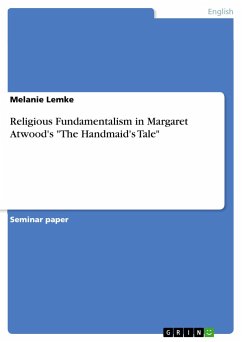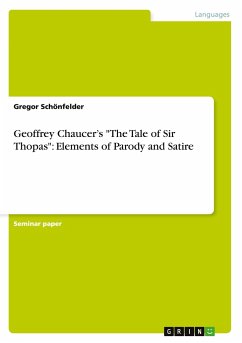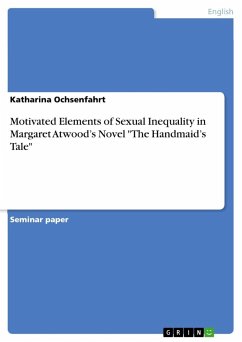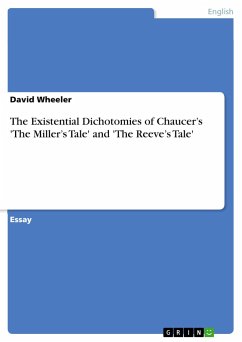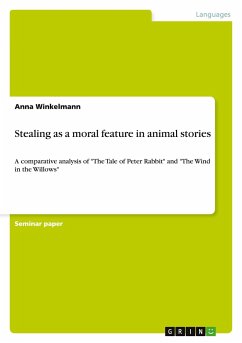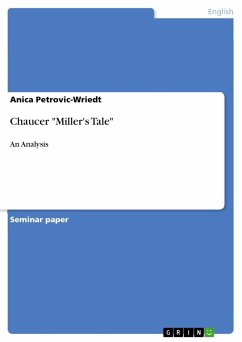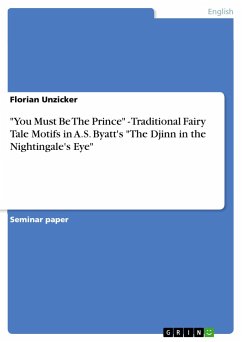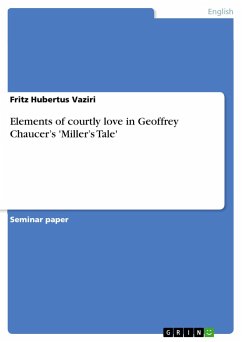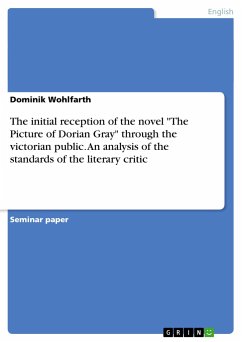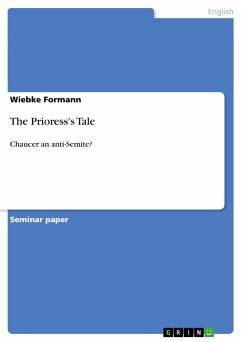
The Prioress's Tale
Chaucer an anti-Semite?

PAYBACK Punkte
0 °P sammeln!
Seminar paper from the year 2006 in the subject English Language and Literature Studies - Literature, grade: 1,3, Ernst Moritz Arndt University of Greifswald, language: English, abstract: An examination of a tale on anti-Semitism affords a clear definition of it. In addition one could argue if an examination of a medieval text on a matter - which has only been called by its name since 1880 - is appropriate. Anyway, in this comparatively short period of time many definitions of anti-Semitism have appeared surface, ranging from opposition to, hatred of, prejudice or discrimination against Jews a...
Seminar paper from the year 2006 in the subject English Language and Literature Studies - Literature, grade: 1,3, Ernst Moritz Arndt University of Greifswald, language: English, abstract: An examination of a tale on anti-Semitism affords a clear definition of it. In addition one could argue if an examination of a medieval text on a matter - which has only been called by its name since 1880 - is appropriate. Anyway, in this comparatively short period of time many definitions of anti-Semitism have appeared surface, ranging from opposition to, hatred of, prejudice or discrimination against Jews and "one of the generally acknowledged intellectual heresies" to "taking a trait or an action that is widespread if not universal, and blaming only the Jews for it" . Taken literally, anti-Semitism does not only refer to the Jews, but to all 'Semites', which would also include the Arabs ; therefore anti-Judaism would be the more suitable term. Nevertheless I will make use of anti-Semitism in this paper because it is the well-established term and in contemporary application predominantly restricted to hostility towards the Jews. In respect to the preceding definition, anti-Semitism is more than obvious in Chaucer's Prioress's Tale: The Jews murder - out of pure hatred - a little Christian boy who was just worshipping "His Lady" through his song and finally are tortured and killed. In the first chapter I will illustrate in detail to what extend the Prioress's Tale is an anti-Semitic story.As a matter of course the question raises, if Chaucer only illustrated the typical subjects of the time in the corresponding way or if he was well aware of the unfairness of the tale's content. In other words: did he believe the Jews to be an evil people (as that was the common belief in medieval times) or did he present the Jews as wicked on purpose, and therefore on anti-Semitic grounds? I will deal with the implications of this question in chapters two and three respectively. In chapter two I will elaborate on the medieval image of the Jews on the basis of their depiction in contemporary literature and their political situation during the Middle Ages.In order to convict Chaucer of being anti-Semitic or not, knowledge about the style of the tale and its intention is needed. In chapter three I will take into consideration Chaucer's use of the Prioress as the narrator of the tale and describe Chaucer's function as the author. Finally I will evaluate the information gained from chapters one to three and present an answer to the crucial question: was Chaucer an anti-Semite?




